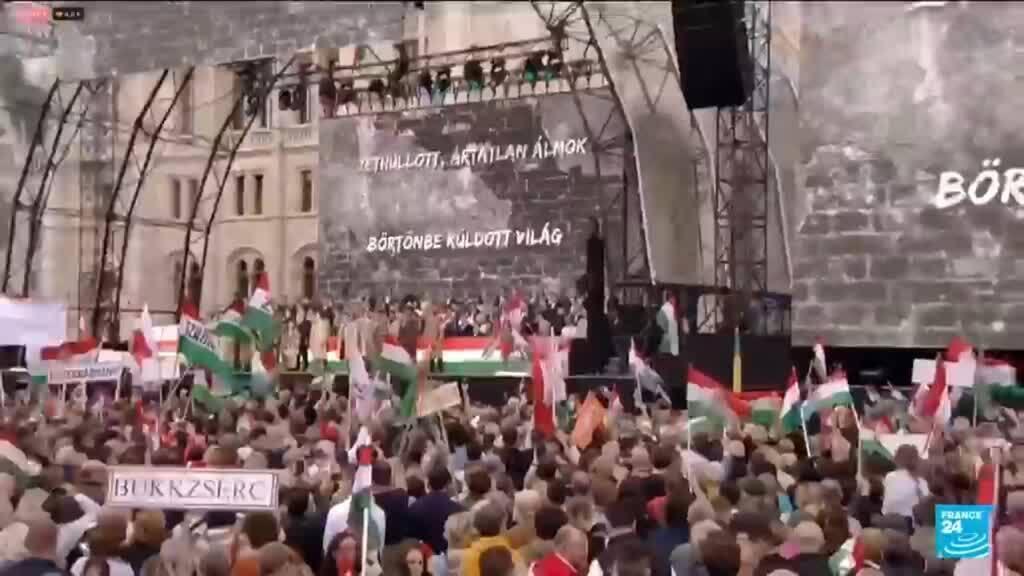Orbán Accuses EU of Seeking 'Puppet' Government in Hungary
On Thursday, Hungarian Prime Minister Viktor Orbán delivered a fiery speech to tens of thousands of supporters in central Budapest, accusing the European Union (EU) of attempting to install a "puppet" government in Hungary. This assertion comes in the context of looming elections scheduled for next year, which Orbán framed as a critical decision point for the nation. He positioned the upcoming electoral battle as a choice between peace and a devastating conflict that could lead to "dying for Ukraine."
In his address, Orbán condemned EU policies, suggesting that Brussels was not only fostering an environment of discord but also sought to orchestrate a larger geopolitical strategy that could result in the partitioning of Ukraine. He suggested that the EU's intentions were rooted in an agenda that would ultimately compromise Hungary's sovereignty and align it with foreign powers, particularly in its approach to the ongoing conflict in Ukraine.
Facing significant pressure from a center-right, pro-EU opposition party, Orbán’s remarks seemed calculated to galvanize his base by invoking nationalistic sentiments and portraying the election as a climactic battle against foreign influence. His rhetoric suggested that the choice at the polls was not merely political but existential, underlining a narrative of Hungary as a bastion against external threats and interventions.
Orbán's claims reflect a broader populist strategy that has characterized his administration's approach towards both domestic and international politics. By framing the EU as a potential antagonist, he aims to consolidate support among voters who may feel uneasy about the implications of EU membership, especially during turbulent times exacerbated by the war in Ukraine.
The Prime Minister’s comments also seem to resonate with certain segments of the Hungarian populace, who may harbor skepticism towards the EU's influence on national matters. This dynamic could play a critical role as Hungary finds itself navigating the complexities of EU policymaking while managing internal dissent and external pressures related to the war in Ukraine and its broader implications for regional stability.
As next year’s election approaches, the stakes appear to be rising for Orbán, with his administration striving to maintain its grip on power amidst a changing political landscape. The implications of his rhetoric serve to polarize the electorate further, framing a stark dichotomy between loyalty to national interests and alignment with European institutions.
Overall, Orbán's assertions and the surrounding political context underscore the growing tensions between national sovereignty and supranational governance, a dynamic that is increasingly relevant not only in Hungary but across the EU. As the political climate continues to evolve, the forthcoming elections will likely serve as a crucial indicator of Hungary's future trajectory and its relationship with the EU.












